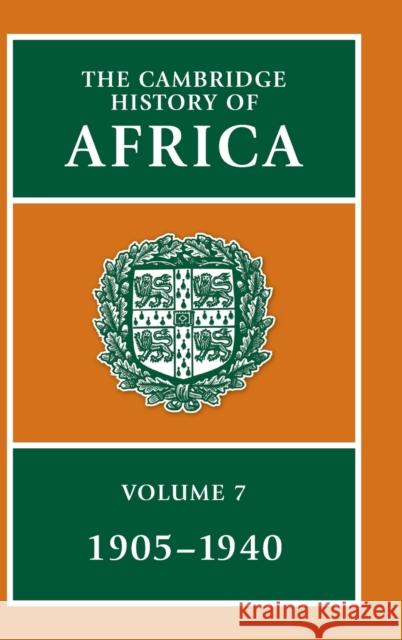The Cambridge History of Africa » książka
The Cambridge History of Africa
ISBN-13: 9780521225052 / Angielski / Twarda / 1986 / 1086 str.
By 1905 most of Africa had been subjected to European rule; in the 1940s, the colonial regimes faced widespread and mounting opposition. Yet the period surveyed in this volume was no mere interlude of enforced quiescence. The cash nexus expanded hugely, as Africans came to depend for access to household necessities upon the export overseas of primary products. The impact of white rule on African health and welfare was extremely uneven, and African lives were stunted by the labour requirements of capitalist enterprise. Many Africans suffered greatly in the First World War and in the world depression of the 1930s. By 1940 a majority of Africans were either Muslim or Christian. Literate Africans developed new solidarities: tribal, territorial, regional and Pan-African. Meanwhile, the colonial powers were themselves improving their understanding of Africa and trying to frame policies accordingly. Co-operation with indigenous rulers often seemed the best way to retain control at minimum cost, but the search for revenue entailed disruptive economic change.











